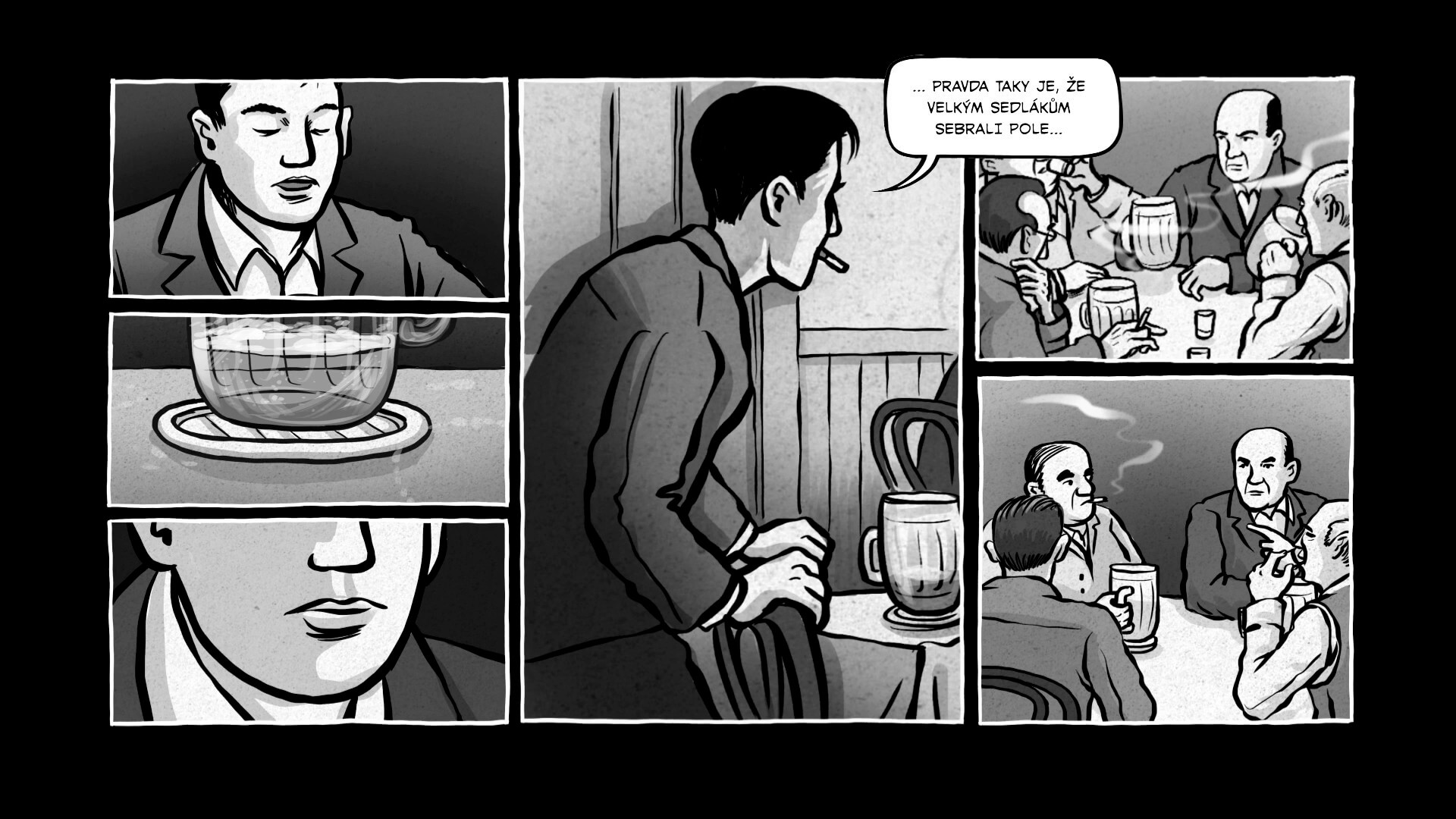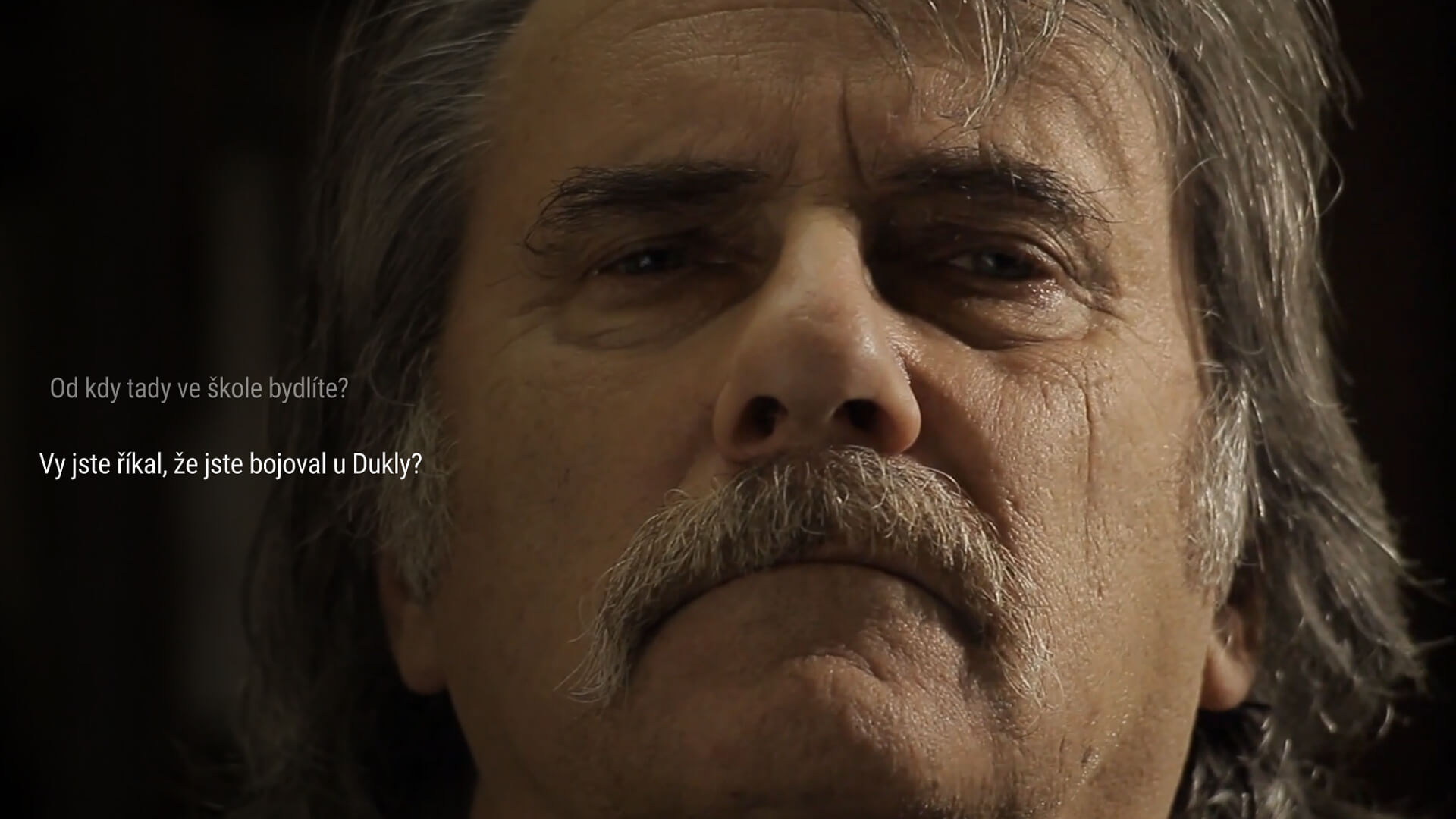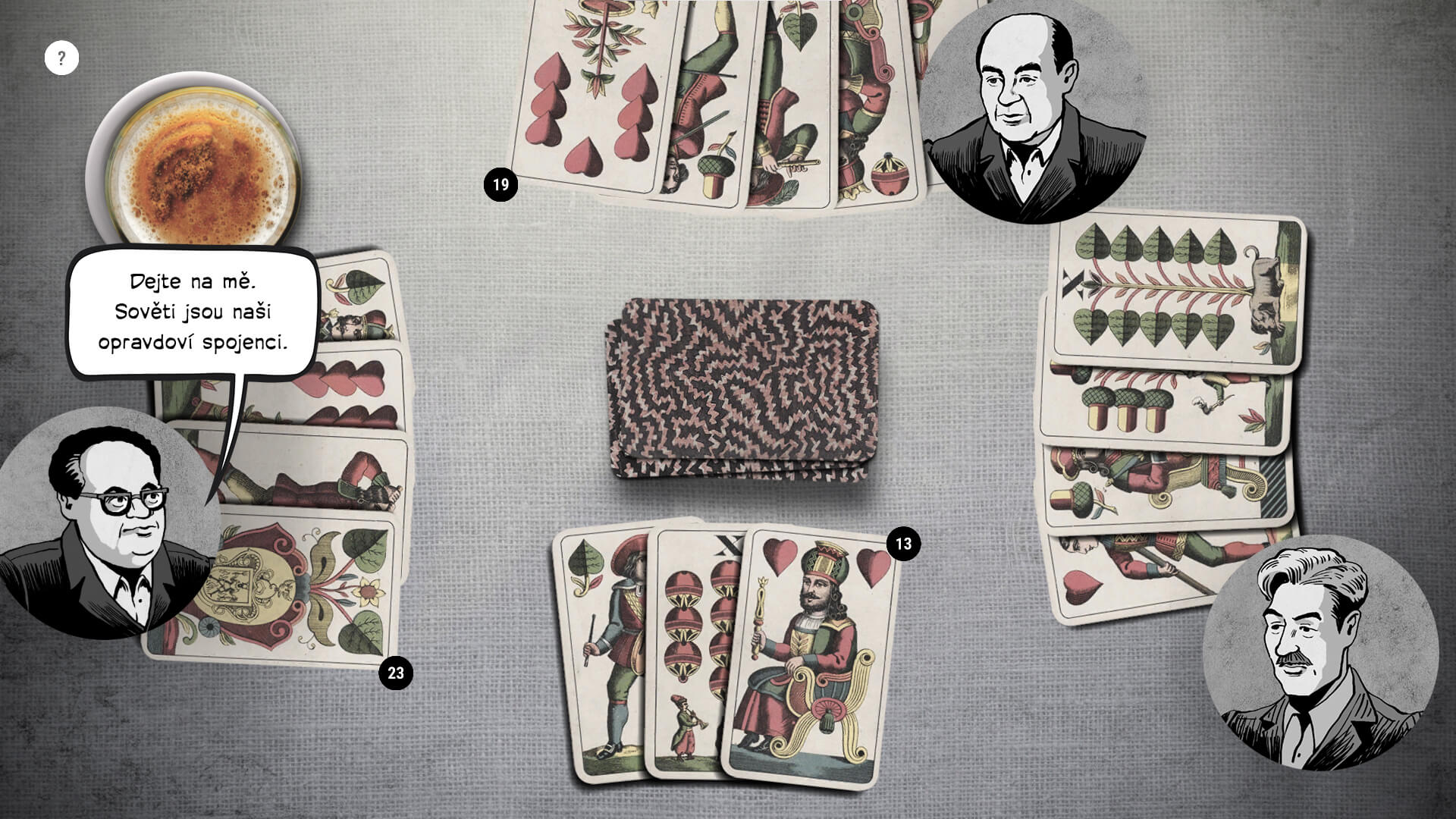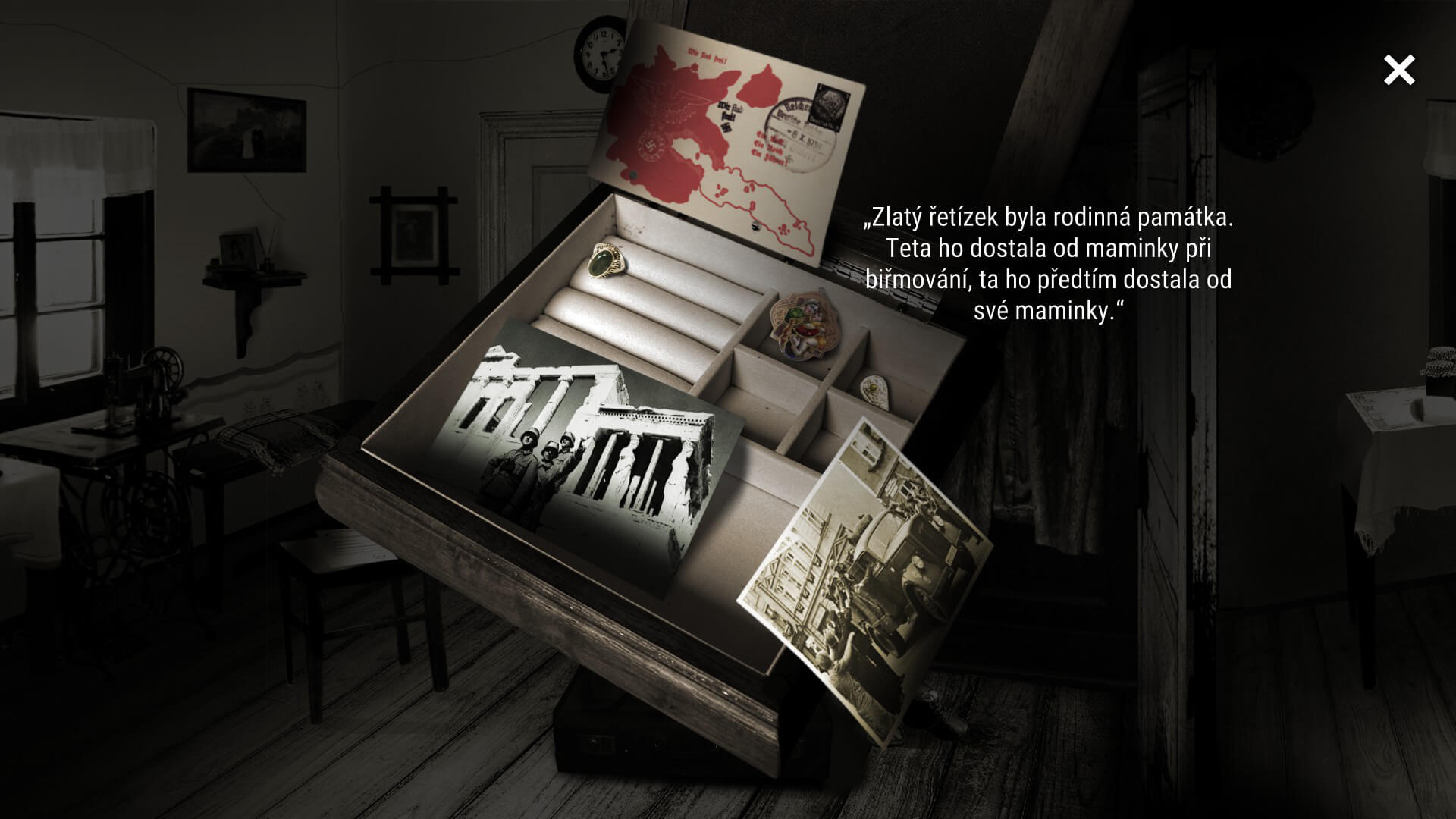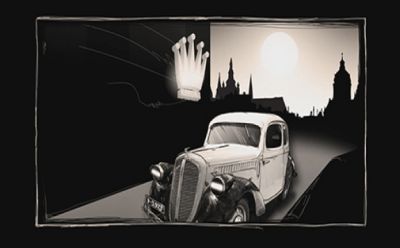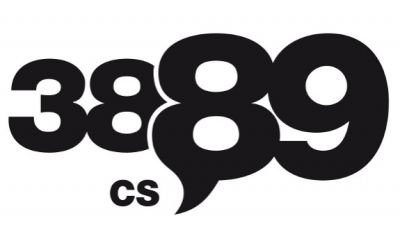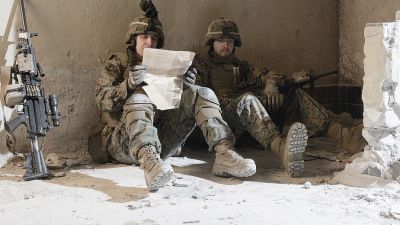Charles Games was founded in 2020 as a successful spin-off at Charles University (on the chassis of the previous Charles Games workgroup). The spin-off is the name behind the unique and highly rated historical and educational computer game Attentát 1942 and its follow-up Svoboda 1945: Liberation (released in 2021). The games have won acclaim for their unique presentation and style (making use of historical documentation, live-action actors and animation) placing importance on historical accuracy and depth.
Svoboda, like its predecessor, does not shy away from difficult topics such as the expulsion of ethnic Germans post-World War II or forced collectivisation in communist Czechoslovakia. One of the aims is to show that history is more nuanced than we sometimes realise or are willing to admit. Lukáš Kolek is the project director at Charles Games:
“One of the things that we hope players take away from our games is the realisation that history is not just black & white but that there are different perspectives. The aim is to show a more complex picture of some of the events that happened. Through our games, you can gain much more detailed knowledge about a particular period and historical events.”
Svoboda 1945 is set in a village in the former Sudetenland, part of Czechoslovakia that was annexed by Nazi Germany following the Munich Agreement, what ultimately proved a tragic and futile attempt to appease Hitler and avoid war. After the war, millions of ethnic Germans were expelled from Czech border areas in reprisal for supporting the Third Reich but the expulsion remains a controversial chapter in Czech history to date. A brief period of renewed democracy followed the end of the war, before the Communists took power in 1948, leading to more social and economic upheaval, injustice and utlimately the end of democracy and freedom.
Within the story presented, are plenty of areas where the truth has been buried or is refracted through the lens of blame and mistrust where players have to dig deeper and develop a broader picture. The events and turns of fortune are based on real testimonies from individuals who experienced those dark days. Lukáš Kolek again:
“There is no question that things got very bad in Czechoslovakia, which is something we know historically and which was the subject of the previous title, Atentát. By comparison, the historic period in Svoboda like the expulsion of Czech Germans, these events are not as ‘set’ in the historical memory. Even just two presidential elections ago the expulsion of ethnic Germans after WW II emerged as a big issue [The first presidential bid by Miloš Zeman against Karel Schwarzenberg in 2013 – ed. note]. There are different perspectives and this is something that is still very alive.”
In the game, players makes choices that determine the order in which how information is unravelled – making each experience different.
“Figuring out how to deliver the experience to players was the most difficult thing [anchored] in the fact that you can’t change history but you can interact with the people who experienced it, who survived such periods and were eyewitnesses. However, the story is set in the present so a lot depends on how assertive you are and balances on just how willing you are to investigate. We started by doing storyboards of the different storylines that players ended up following in the game.
“There are interactive sequences where you can experience key moments. In Svoboda 1945, you can experience first-hand what it was like to take part in [the forced] collectivisation in the 1950s. We simulate what it is like to find yourself responsible for a collectivised farm. You feel the pressure of the communist regime to be successful so it is like a small economic engine. From my perspective, these are some of the ways in which we pushed the format if the game further. That, and the fact that all the storylines were based on real historical research, were [paramount] in the whole project.”
Historians were thus a crucial part of the development team: all decisions were consulted, says Kolek, from small details such as the price of a tractor in the 1950s to the bigger picture: how widely social processes resonated within society. Another part of the team were filmmakers who put together clips, although Lukáš Kolek points out that much of the material had been taped earlier, going as far back as seven years, in connection with related educational projects. Finally, there were designers and artists and programmers themselves. While the tasks were many, the results were clearly worth it. Since its release, Svoboda 1945, like the preceding title, has picked up numerous positive reviews and accolades, and was chosen in the official selections at various gaming festivals. Like Attentát, the title found its audience across PC, iOS, and Steam platforms, confirming a strong and continued interest in narrative-based games.
“Who is our audience? Obviously they are people who like history but also strong stories and are interested in the experimental ways that games can tell stories and approach sensitive or difficult topics. It’s no secret that the average age of our player is around 30 in western Europe or America and those players are usually looking for something unique or something new. Our games are not mainstream, that much is pretty clear.
“With Svoboda 1945 we aimed for the same audience as the previous title and are interested in long-term sales. Ours are pretty stable over a longer period, whereas the traditional picture for most games is a huge interest at the start which eventually declines.”
If interested, you can find more information about Charles Games’ titles online but you may be interested to know that that is not where the story ends. Not just playing but pitching promising ideas to the studio by Charles University students, is a real possibility. Cooperation with up and coming programmers and others across multiple disciplines is another aspect that sets Charles Games apart. Project manager Lukáš Kolek once again:
“We are actually very open to external input and external collaboration, that’s what we do. Commercially, the studio is based on our own projects but at the same time on work with partners. We are very open to ideas. We run a student incubator for games that are coming out of Charles University, specifically students at the Faculty of Mathematics and Physics, because they have game development specialisation there.
“We have one team there with students who are part of various teams across different faculties and even different universities who are interested in game design. Designers, programmers, graphic designers, who create games and occasionally create some very good ones. We picked a very good game called Silicomrades and we are working with them to get it to the market. Silicomrades is cooperative and is kind of a parody of bureaucracy. It’s an action game but sometimes you have to cut through levels of bureaucracy to get across a border and so on. It is a satirical take on a cooperative game. Hopefully that will be a success. We want to help students and in return they also provide us with feedback.”



